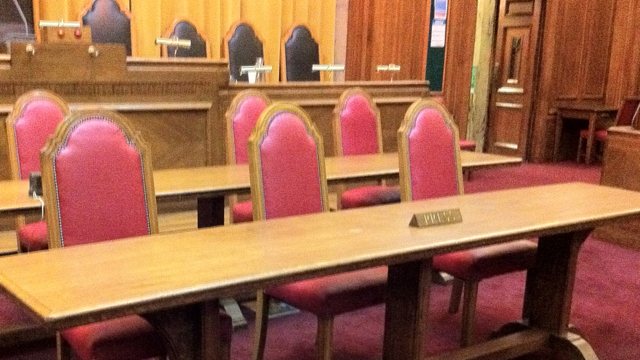
Last night was the council tax setting meeting. If the council has anything like a set-piece debate in its calendar it must surely be the council tax setting. It’s as close as we get to a Queen’s speech or a budget.
For the record we froze council tax again – though this year it seems we’ve been joined by most other councils in following that route (I read the other day that this is the first year in 18 that nationally the average council tax has decreased).
But what troubled me is how poorly attended it was.
Despite all the controversy about cuts, deficits and everything else relatively few people attended, even though the Battersea and Wandsworth Trades Union Council were organising a demonstration. When I arrived there were only about a dozen people there, I think most as part of the union protest (basing my assumption on the fact most had union banners and placards).
This isn’t a criticism of protest turnout. When the council serves nearly 300,000 residents even if they had hundreds protesting it would arguably be “poorly attended”.
Instead it set me thinking about transparency and public accountability: specifically about Eric Pickles recent call that bloggers be let into Town Halls.
Because what really got me was not that relatively few residents were there to see the council making decisions, but that no press were there either. Last night’s agenda had three main items: the council tax, a debate about libraries (and specifically York Gardens) and a debate about the purchase of the Bolingbroke site for a free school.
Probably the three biggest political issues the council has but, as usual, the press desk in the council chamber was empty.
Sitting just a few yards from the empty press desk for three hours of debates it made me realise exactly why Eric Pickles is right about broadening access beyond the traditional media. Given that the local press can only rely on second-hand (and necessarily biased) accounts of the meeting, it’s hard to see who they can offer independent challenge.
Of course, like many councils, our standing orders are not naturally friendly towards blogging, a consequence of largely being written in an age before mobile telephones, let alone YouTube. And I’ll be honest, I don’t know any Wandsworth-focussed bloggers who might want a space at the press table, which is a far bigger problem.
But like so many things, if you don’t ask, you don’t get – and even if a blogger covers just one meeting a year, that’s better than the current arrangement of the traditional press not covering any meetings.
 If not a total surprise, I was saddened to hear that Wandsworth’s local paper is no more. Even more so that it passed with no-one noticing, the issue published just before Christmas,
If not a total surprise, I was saddened to hear that Wandsworth’s local paper is no more. Even more so that it passed with no-one noticing, the issue published just before Christmas,